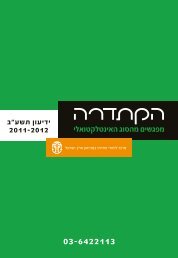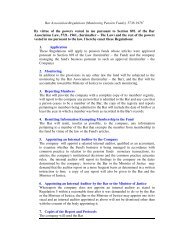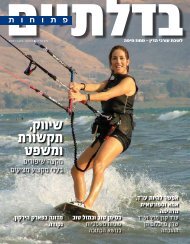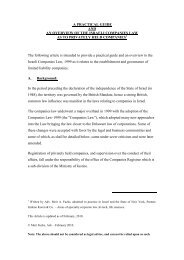III. Sanctions on individuals
III. Sanctions on individuals
III. Sanctions on individuals
Create successful ePaper yourself
Turn your PDF publications into a flip-book with our unique Google optimized e-Paper software.
<str<strong>on</strong>g>III</str<strong>on</strong>g>. <str<strong>on</strong>g>Sancti<strong>on</strong>s</str<strong>on</strong>g> <strong>on</strong> <strong>individuals</strong><br />
• On the intent to enhance sport performance, there are some c<strong>on</strong>tradictory CAS<br />
awards:<br />
‣ CAS 2010/A/2107 Flavia Oliveira v. USADA: the athlete did not know she was<br />
taking a prohibited substance as it was labelled <strong>on</strong> the product differently than <strong>on</strong><br />
the WADA list of prohibited substances. Only the use of the substance should be<br />
taken into c<strong>on</strong>siderati<strong>on</strong> when assessing the intent (CAS 2011/A/2645 UCI v.<br />
Alexander Kolobnev & RCF)<br />
‣ CAS A2/2011 Kurt Foggo v. Nati<strong>on</strong>al Rugby League: the use of the product shall<br />
be taken into c<strong>on</strong>siderati<strong>on</strong> when assessing the intent, not <strong>on</strong>ly the substance<br />
‣ CAS 2012/A/2804 Dimitar Kutrovsky v. ITF: an athlete’s knowledge or lack of<br />
knowledge that he has ingested a specified substance is relevant to the issue of<br />
intent but cannot of itself decide it. Foggo approach must be followed<br />
• When the Panel does not have to address the issue of intent, it automatically looks at<br />
the product itself and not the substance (CAS 2011/A/2495 FINA v. Cielo & CBDA)<br />
• The first draft of the WADA Code for 2015 clearly states that the Oliveira approach<br />
should not be favored. WADA now seems to go towards a deleti<strong>on</strong> of the intent

















